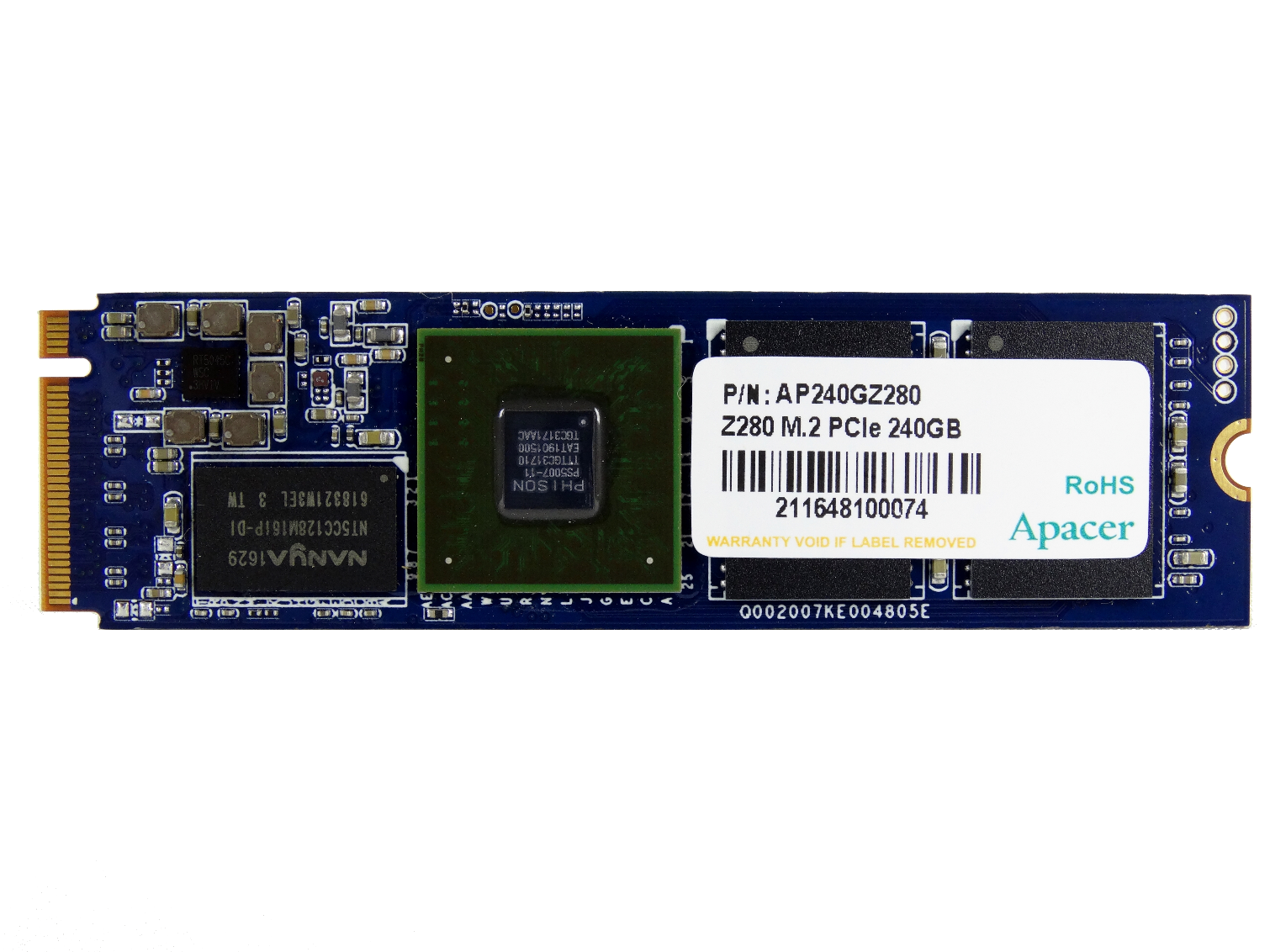Apacer Z280 NVMe M.2 SSD Review
Why you can trust Tom's Hardware
Conclusion
Phison's PS5007-E7 has penetrated the market with several key products from multiple vendors. Phison hasn't gained the same level of success that SandForce achieved, but it is on its way to taking a significant piece of the market share. Just like with SandForce products of yesteryear, many of these E7 products are less exciting, but it plays well for shoppers. A proliferation of similar products inevitably leads to increased competition, and thus lower prices. Phison's recent success with the S10, and now the E7, may not be as exciting as a new Samsung NVMe SSD, but it's the reason why we still have numerous MLC-based products that sell for TLC prices. If you look at the products coming from the behemoth NAND fabs, like Intel, Micron, SanDisk, Toshiba, and SK Hynix, you will find TLC SSDs dominating the consumer lineups. That road map will play out for years to come. The fabs hope we are happy with TLC products as the high-performance option, and they will inevitably roll out QLC (4-bits per cell) SSDs as the value option.
The Apacer Z280 doesn't come with any frills, but it scores high marks for performance and value. The Z280 isn't the drive you buy to show off with your RGB motherboard through a plexiglass case window; it’s the drive you buy while shopping for a high-performance storage solution on a tight budget. The $220 Apacer Z280 480GB is a solid value that is difficult to match. The Z280 240GB at $129.99 isn't as good of a deal because of the smaller capacity, but is still provides good performance. Many of us don't need a lot of storage capacity, but we do want the decreased latency that improves the user experience.
The Apacer Z280 comes up short in a couple of areas. The Z280's idle power consumption makes it a poor choice for notebook use. Most new notebooks ship with M.2 storage, or the ability to use an M.2 SSD in a secondary slot. Phison should address the power consumption issue with a firmware update.
The power issue is beyond Apacer's control, but it specifies the 3-year warranty period. The Z280 follows the MyDigitalSSD BPX and its five-year warranty to market, and the Z280 also retails for slightly more. When there are two products with similar specifications, performance, and price, there is usually one feature that pushes a shopper to a specific product. Both the warranty and the price hurt our outlook for the Apacer Z280, but the company can adjust pricing to make up for the small deficiency.
MORE: Best SSDs
MORE: Latest Storage News
MORE: Storage in the Forums
Get Tom's Hardware's best news and in-depth reviews, straight to your inbox.

Chris Ramseyer was a senior contributing editor for Tom's Hardware. He tested and reviewed consumer storage.
-
serendipiti Just wondering if it's possible to install OS and boot from NVMe drives (with PCIe adapters) on older motherboards by using one SATA HDD or SSD to start the windows loader and from there start the OS on the NVMe drive. The boot time would suffer, but then you should get the OS running from the NVMe drive. Not sure if there would be trouble with the drive letter assignment (but I've seen some smart cloning utilities that dealt with the drive letters reassignment)Reply
Going through a VM placed on the NVMe drive makes any sense ? -
svan71 https://forums.anandtech.com/threads/full-nvme-support-possible-for-older-intel-chipsets.2437588/Reply -
serendipiti svan71 thank you...Reply
Dealing with UEFI Bios firmware it's what I tried to avoid...
"As far that I know, there are several ways that you can use to load UEFI Drivers. One of them is having the UEFI Drivers integrated in the Firmware, which is what you did, but they may also be loaded as files from a disk's EFI System Partition. A previous idea I had was that you could format an USB Flash Drive in GPT with an ESP containing the NVMe Driver EFI executable, which could be loaded by UEFI, so it can provide NVMe support on older platforms. However, I don't recall anyone testing that way. Not even close as good as integrating them, but if it fails, it may also be worth a try." -
Bruce427 @ Chris,Reply
I purchased a 240GB MyDigital BPX around Thanksgiving on 2016.
It is likely that I have the latest firmware update? And if not, where can I download it?
Thank you,
Bruce -
Bruce427 Where can the latest firmware be downloaded? I didn't see it on MyDigital's website under firmware updates.Reply
